It’s been way too long! How strange to be writing this as an actual SON student!
The last few weeks have been a whirlwind: full of excitement, great conversations, and pangs of anxiety. At the risk of sounding cliche, I can’t believe that all of this is really happening. I think that must be the way one usually feels when beginning any new and exciting adventure, yet each time I begin something new, i forget what that feeling feels like until I am thrown into action. Between orientation and the first two weeks of classes, I have met wonderful people from all walks of life and I have been overwhelmed by the kindness and support I have witnessed and felt from family and friends, both old and new, near and far.
This past Friday was my first official clinical day at Johns Hopkins Hospital/Osler-5. On our first day on the floor, we were paired up and I was fortunate to have the opportunity to work with a fellow classmate and new friend while taking care of our patient, who had been transferred from the ED and was still in quite some pain from effects of multiple chronic conditions. We worked with a nurse who was tending to our patient’s care along with the care of several other patients on the unit. She helped us break the ice by giving us a warm introduction to our patient and reassuring him that we would take good care of him throughout the day. In addition, she prepared us that our patient had been a bit grumpy the evening prior, and when we met him he seemed uncomfortable and eager to go home. I was surprised by the degree to which I felt at ease when we entered the patient’s room and I am grateful to our teaching nurse for paving the way for us and making sure our patient was fully aware of our role in his care for the day.
Our patient remained anxious to go home throughout the day, but as the day went on, my partner and I both felt a strong connection with him and we even felt like we may have, in our small way, made a huge difference in his mood. By the afternoon we were joking with him, discussing his favorite sports teams, and learning all about his children and grandchildren. We spent much of the day tending to him and asking about the pain in his legs and hands. I was humbled by the fact that simply asking a patient how they are feeling and what it is that I, as their nurse, can do to make them more comfortable is enough to potentially turn someone’s day around and make them feel appreciated. I was struck by the change in our patient’s attitude as the day went on and was really glad that our group had discussed the importance of asking a patient what it is that they need or want to get accomplished prior to our entering the clinical setting. It was clear to me that this step is at the core of patient centered care and that providing a caring environment in which a patient can also have some much needed autonomy is critical to their wellbeing as well as the wellbeing of the other patients and staff on the floor.
Our patient requested that we talk to the doctor about when he might be discharged and was appreciative when we went to talk to the head nurses about his desire to be transferred to a nursing home facility. We were able to get two full sets of vitals and put our new skills to use and we were also able to practice skills that we have not yet practiced in lab such as how to give a bed bath and change the linens while a patient is still in bed. These were valuable exercises and I was able to see how truly possible it is to respect a patient’s privacy, while also providing them with the optimal level of care. Prior to our first clinical day, I had expressed my nervousness about putting my technical skills to use while remaining focused on developing and maintaining a trusting relationship with my patient. I found that this came more naturally than expected and that this concern will be alleviated with time and practice, as my clinical instructor told me earlier in the week.
In spite of my fears about not yet having the science piece under my belt, I felt relieved that the science seems to make more sense when you can put a human face on a certain disease or problem. I learned the importance of not only being patient with my patient and my colleagues, but also the importance of being patient and forgiving of myself, especially as I am just starting out. I was reminded that even the simplest of things, and providing the patient with the most basic of human necessities, (such as helping to give a bath or drink a glass of water) can be and often is the highlight of their day and one of the most fundamental characteristics of being a good nurse.
At the end of the day, I think that everyone is looking and striving for basic human connection. The ways in which that connection is achieved differs based on an individual’s comfort, as well as their own sense of self and their surroundings. We all yearn to connect to others and I strongly believe that this need for connection is strengthened or altered especially in the case of a sick individual. It is my overarching goal for the future to never give up on finding this connection and compassion, no matter how frustrated or confused or defiant or miserable a patient may be. Just that effort-the follow-through on tending to their needs- and tapping into my own desire to empathize is as good a place to start as any. I have to hope and trust that the rest, (accurately reading the EMR, filling out the patient organization and information sheet in a timely manner, and knowing which medication is for which ailment) will follow.
So far, I would say that I feel “oriented x3”, a term I learned this week to describe a patient’s basic mental state. I know who I am and why I am here. I know where I am, and though I often can’t believe it, I am surrounded by some pretty fantastic people who remind me on a regular basis. And, I know roughly what time it is and I am as ready as can be for what comes next!
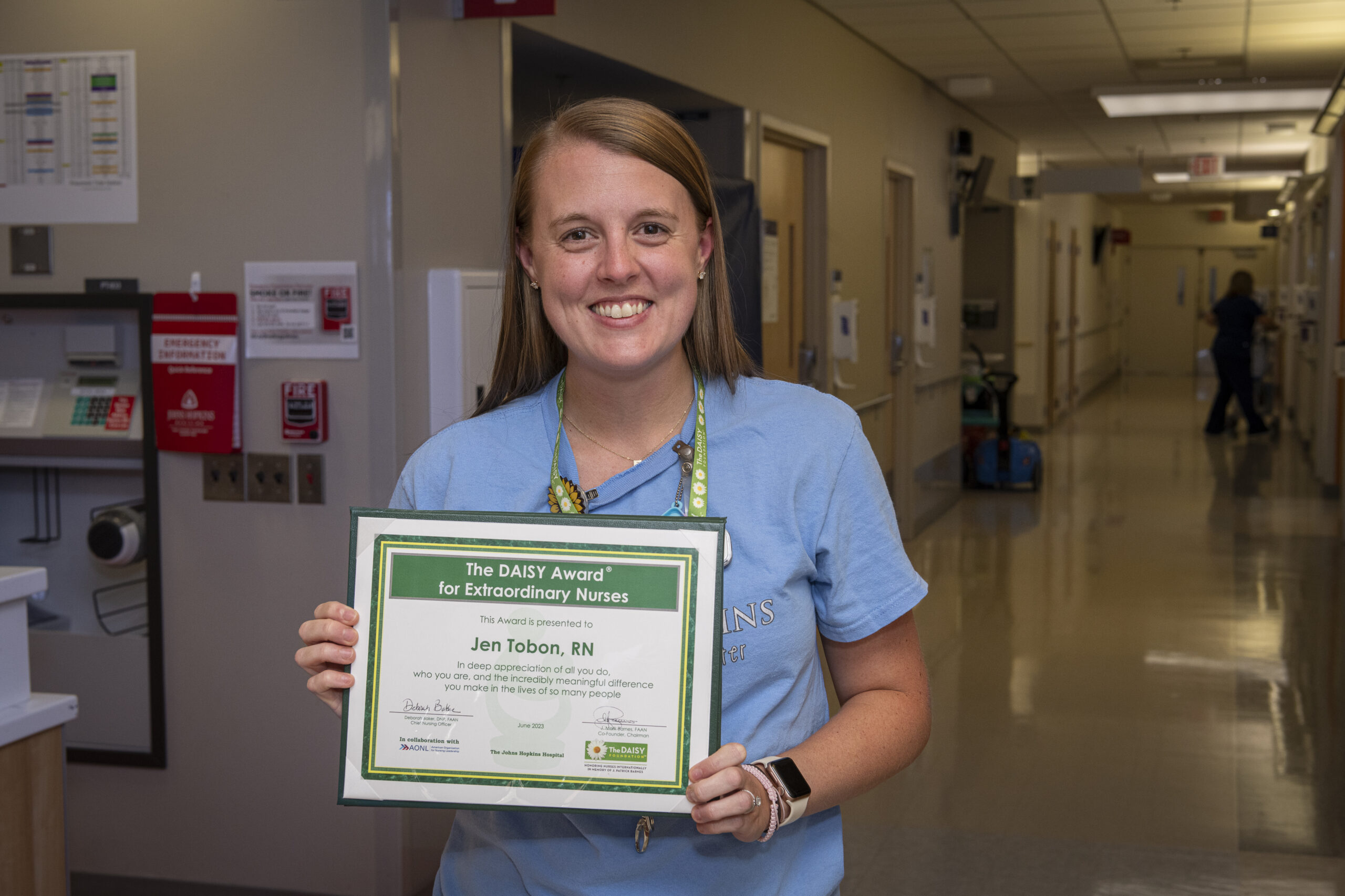 DAISY Awards Fall 2023
DAISY Awards Fall 2023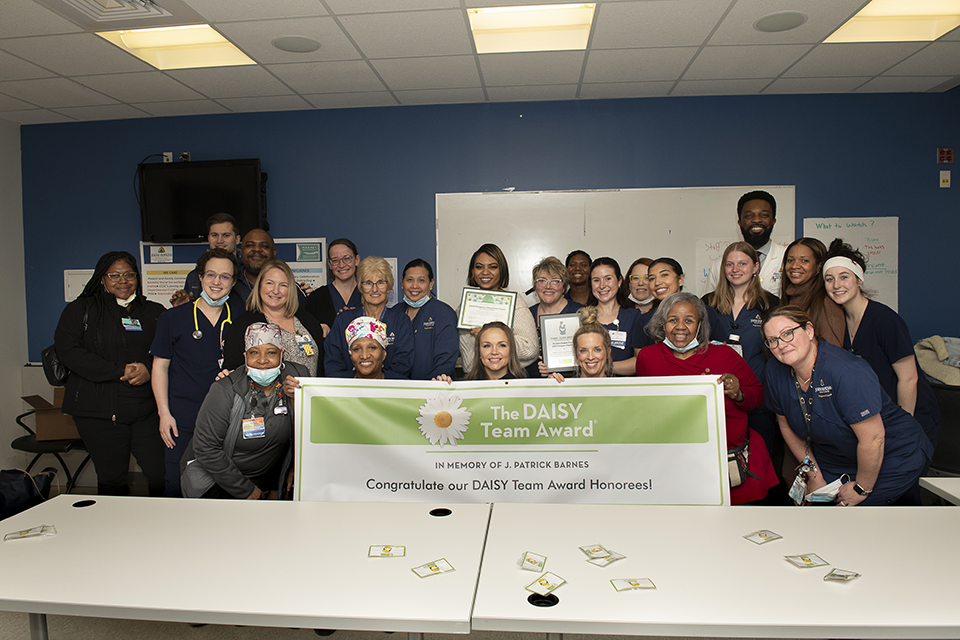 DAISY Awards Spring 2023
DAISY Awards Spring 2023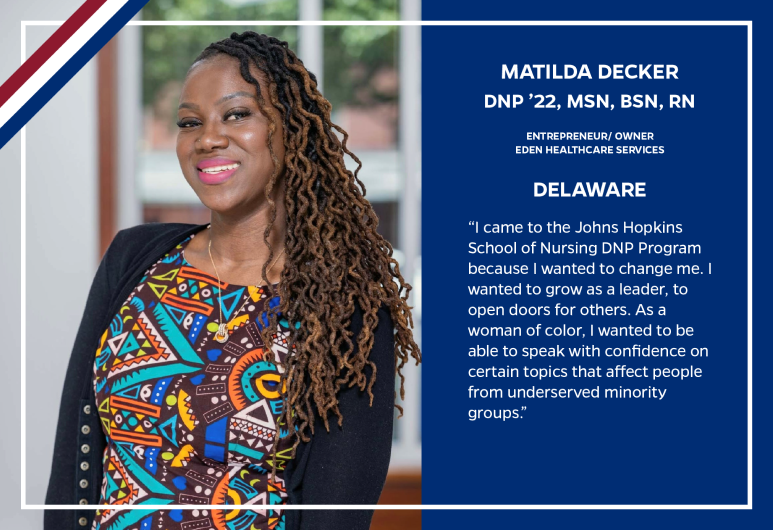 In Perfect Balance
In Perfect Balance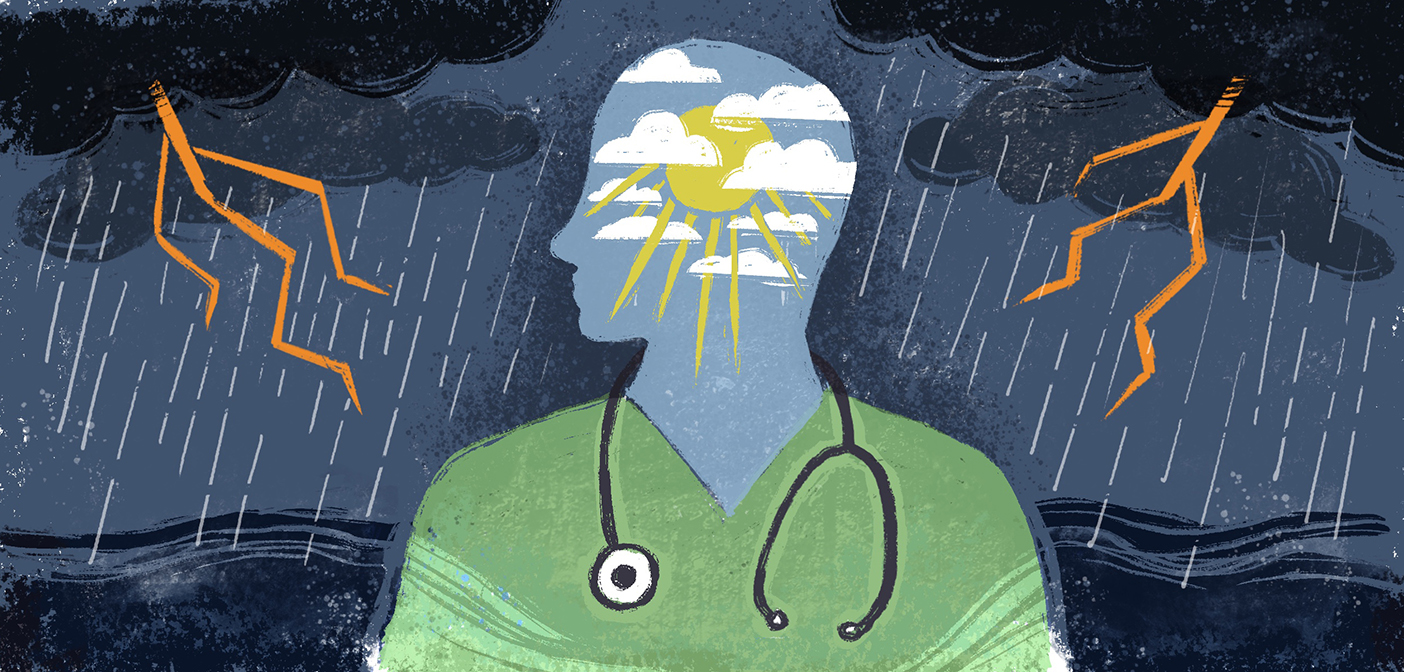 The Eye of the Storm
The Eye of the Storm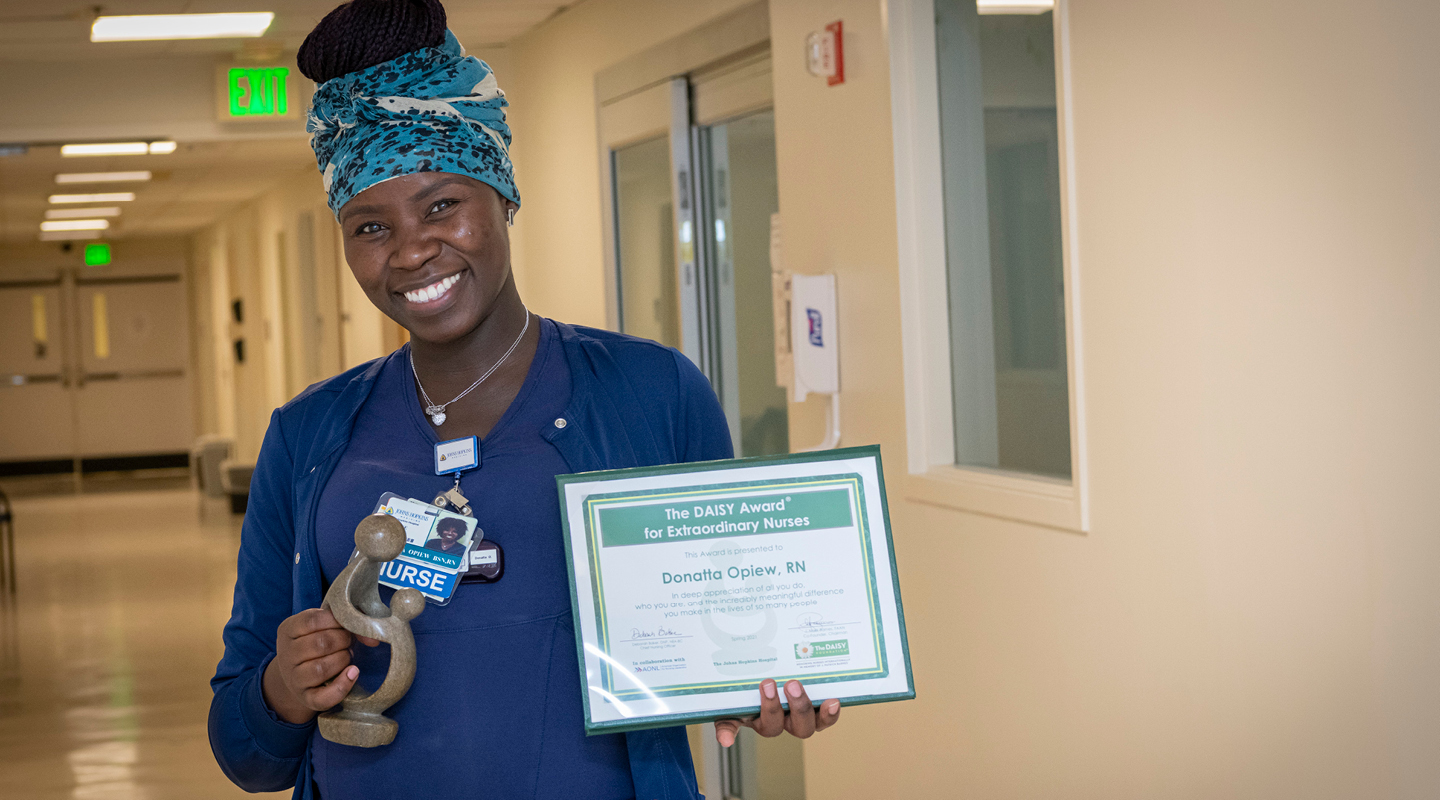 DAISY Award Winners
DAISY Award Winners







